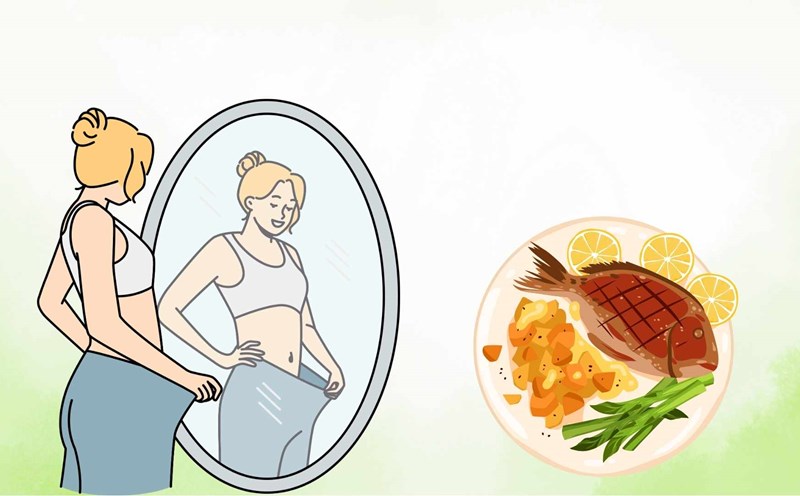Eat enough protein
A protein-rich dinner not only helps improve basic metabolism but also helps burn excess fat while sleeping. Protein also helps the body feel full for a long time and stabilizes the mood.
For those who often exercise in the evening, getting enough protein is even more important. Suitable options include: eggs, chicken breast, lean meat, tofu...
Don't ignore green vegetables
Vegetables rich in fiber help create a feeling of fullness, support digestion and stabilize blood sugar after meals. When combining vegetables with starch and protein, you will limit fat accumulation. You should eat about 1-2 handfuls of vegetables for dinner, prioritizing green vegetables such as broccoli, spinach, bok choy...
Drink a glass of water or low-fat milk before meals
If you often feel hungry in the evening or have difficulty controlling the amount of food when faced with delicious dishes, try drinking a glass of water or low-fat milk before meals.
This helps increase the feeling of fullness, thereby limiting overeating. In particular, low-fat milk also has the effect of stabilizing blood sugar, preventing fat accumulation and supporting deeper sleep at night.
Limit starch in the evening
At night, the body's sensitivity to insulin decreases, making it easier for carbohydrates to be converted into fat. Therefore, you should reduce the amount of starch at dinner compared to other meals. If you eat starch, choose one with a low glycemic index such as whole grains, sweet potatoes, or corn and only eat a moderate amount (about half to a small cup).
Eat dinner early, far from bed
Your metabolism will slow down at night. Eating dinner too late makes it difficult to consume excess calories, easily accumulating fat. It is best to finish dinner before 7pm and stop eating at least 4 hours before bed. Going to bed with a slight feeling of hunger can help the body burn fat more effectively while resting.











